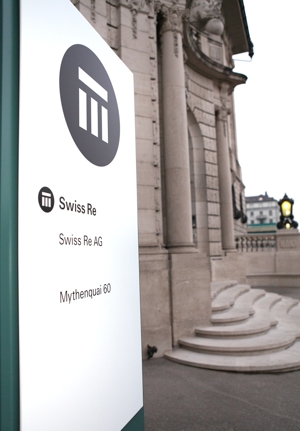Swiss Re has become one of the first reinsurers to incorporate benchmarks to systematically integrate environmental, social and governance (ESG) criteria into the firm’s investment decisions – a process which the firm said improves investment value by reducing downside risks for long-term investors.
 These benchmarks place a renewed emphasis on ESG criteria, moving them from “add-on” considerations to an integral part of the firm’s investment process.
These benchmarks place a renewed emphasis on ESG criteria, moving them from “add-on” considerations to an integral part of the firm’s investment process.
Guido Fürer, Group Chief Investment Officer (CIO) at Swiss Re, said; “enhancing our investment portfolio by adopting broad-based ESG benchmarks has been the most meaningful and strategic step in our journey to integrate ESG considerations into the investment process.
“These benchmarks represent a suitable tool to achieve the desired investment behaviour and set the right measurement both from a performance and ESG perspective.”
The benchmarks were selected by Swiss Re based on the MSCI – a provider of equity, fixed income, hedge fund stock market indexes – ESG methodology for its equities and fixed income portfolios.
Deborah Yang, Managing Director and EMEA Head of Index Products at MSCI, added; “We are pleased that Swiss Re has selected the equity MSCI ESG Index family and the fixed income Bloomberg Barclays MSCI Corporate Sustainability Index family as part of their ESG investing needs.
“This is an exciting time for ESG investing and MSCI are proud to be part of it.”
There are, however, still significant obstacles to ESG criteria being incorporated into decision-making processes as widespread industry practice, such as a focus on “short-termism in the current investment environment,” said Swiss Re.
According to Reuters, which spoke to Swiss Re’s Fürer, the reinsurer plans to move the entire $130 billion it holds in liquid assets to track ethical indices. A very substantial figure, which underlines the continued transition towards ethical investments by the insurance sector.
The investment industry would benefit from a more standardised responsible investing market environment with a common set of best practices providing clear guidance to investors and reducing investment barriers, according to Swiss Re; “enabling a systematic and consistent integration of ESG considerations requires clear definitions, standards and methodologies.”
The reinsurance giant also advocated for “close collaboration between the private and public sectors” to overcome these obstacles and contribute to a more resilient world.
If ESG criteria were to be incorporated into investment decisions on a broader, global scale – with the $75 trillion institutional assets under management worldwide – it could bring the dual potential benefit of improving return on long-term investments as well as significantly contributing to global resilience.


